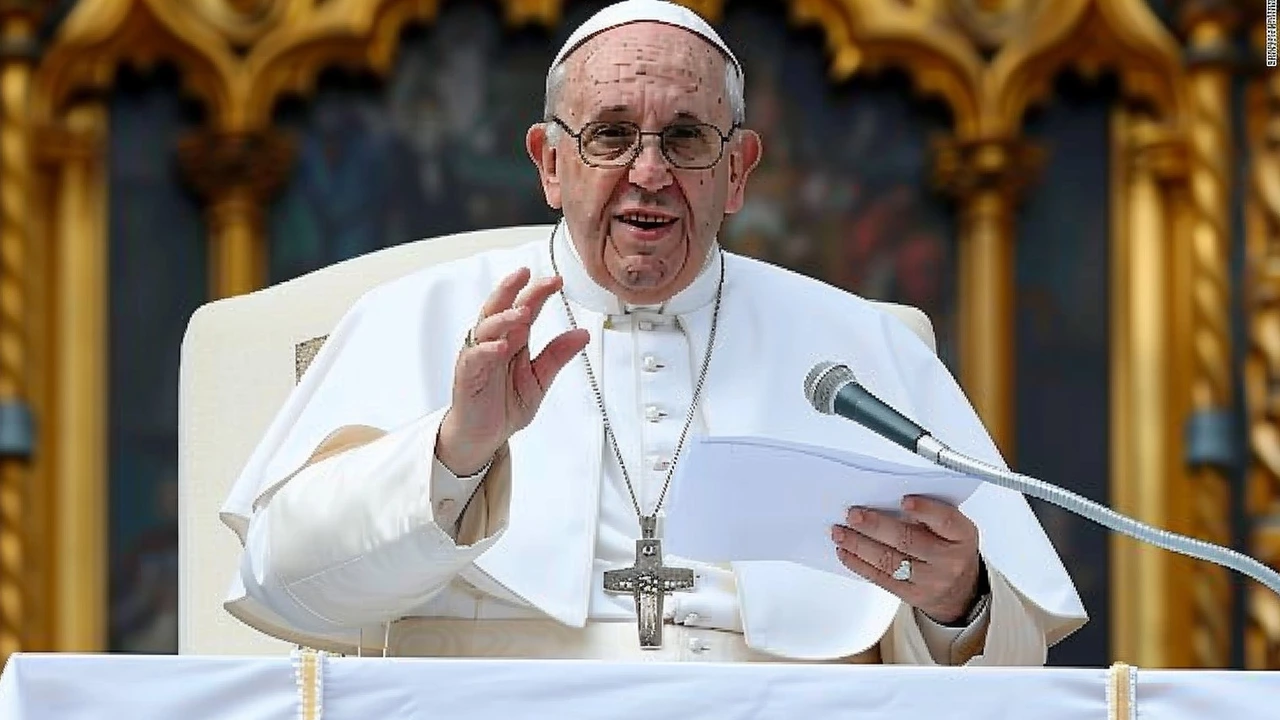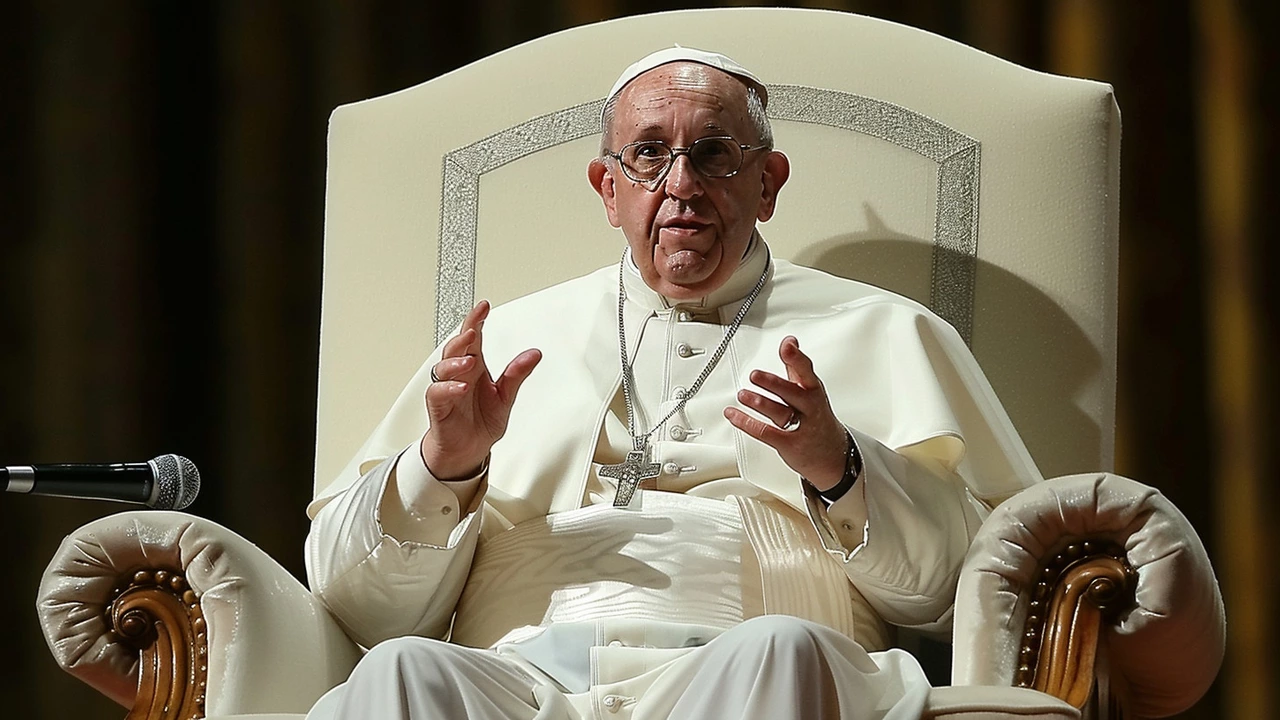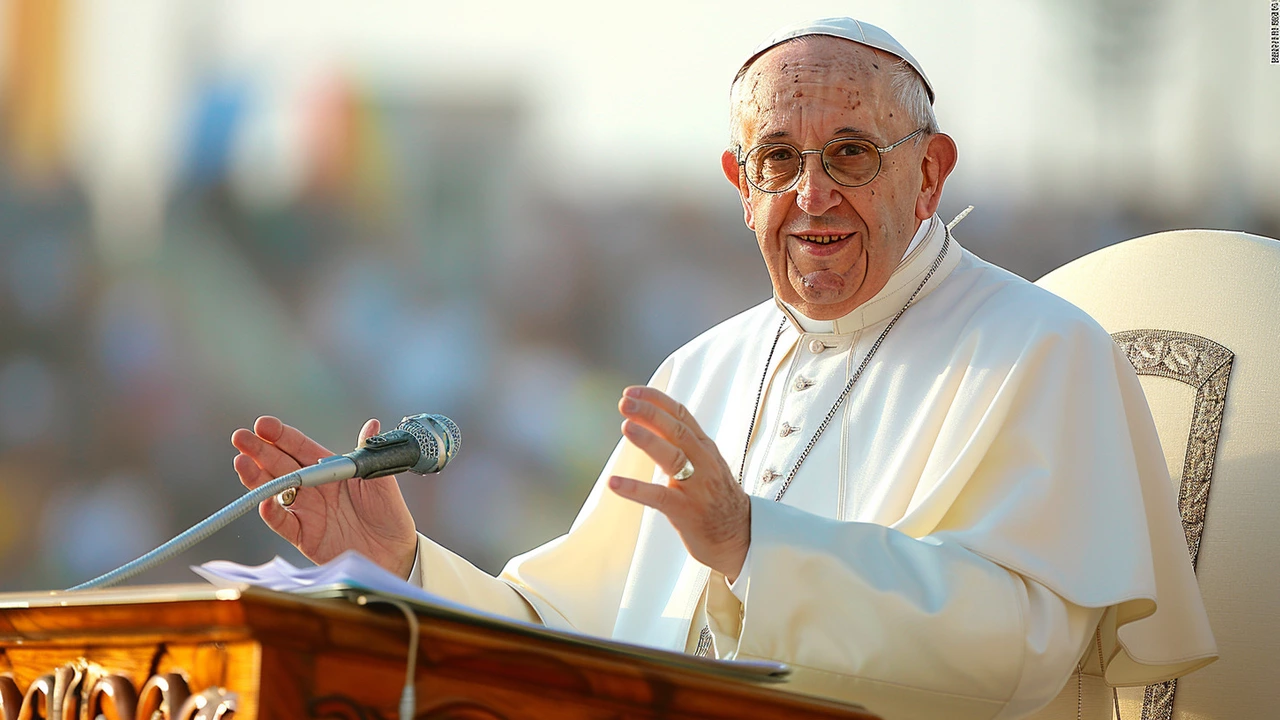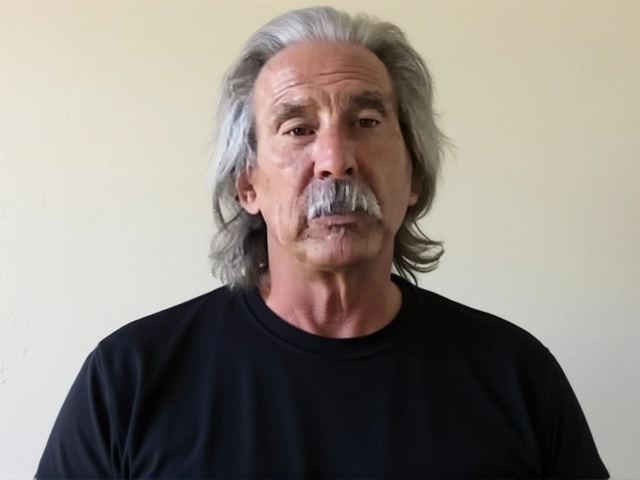Pope Francis Allegedly Uses Homophobic Slur, Sparking Controversy
Italian media reports have caused a significant stir, alleging that Pope Francis used a derogatory term for same-sex individuals, 'frociaggine,' during a private meeting with Italian bishops. This incident, which reportedly took place behind closed doors, has drawn sharp criticism and raised many questions about the Pope's stance on LGBTQ+ rights.
The 87-year-old pontiff is said to have expressed his opposition to allowing celibate gay men to undergo training for the priesthood at Catholic seminaries. According to reports from multiple Italian news outlets, Pope Francis cited concerns that these individuals might lead a double life, thus creating a potential conflict within the church's already strained boundaries regarding sexuality and celibacy.
The Nature of the Meeting and the Alleged Comments
The meeting in question was intended to be a confidential gathering of Italian bishops. It raises the question of how such explosive comments made it into the public sphere. Reports suggest that several attendees were deeply concerned by the Pope's choice of words, and it seems that these concerns were relayed to the media. The term 'frociaggine' is particularly offensive in Italian, adding a considerable layer of gravity to the situation.
While the Vatican has not yet commented on the allegations, the news has spread rapidly, eliciting a myriad of reactions from both within and outside of the Catholic community. Many are finding it difficult to reconcile these alleged comments with the image of Pope Francis as an inclusive figure who has previously made significant strides towards LGBTQ+ acceptance in the church.
Past Inclusive Actions by Pope Francis
It’s particularly surprising given Pope Francis's track record. The pontiff has previously shown a remarkable willingness to engage with and support the LGBTQ+ community. Under his leadership, the Vatican has taken steps to be more inclusive; for instance, they have approved blessings for same-sex couples. Additionally, the Pope has consistently condemned laws that criminalize homosexuality and has even given his blessing for transgender individuals to be baptized and serve as godparents. These actions have endeared him to many in the LGBTQ+ community, presenting a marked departure from the church's historically conservative positions on such matters.
Therefore, these new allegations stand in stark contrast to his prior actions and statements. This contradiction has led many to question whether there is a deeper, more complex set of views within the Vatican, or if the Pope himself is struggling with a balance between traditional doctrine and modern inclusivity.

Reactions and Criticisms
The reactions have been swift and varied. On social media, many LGBTQ+ advocates and allies have expressed outrage. Comments range from disappointment to accusations of hypocrisy. Several prominent figures in the community have called for a formal explanation or apology from the Vatican, warning that such language could have harmful repercussions for LGBTQ+ individuals within the church and beyond.
Additionally, there is concern among theologians and laypeople about what this incident means for the future direction of the Catholic Church. Is this a sign of a potential rollback on the progress that has been made? Or is it an isolated incident reflecting a personal opinion rather than an institutional stance? Until the Vatican issues a formal statement, these questions will likely remain unanswered.
The Broader Implications for the LGBTQ+ Community
This incident is not merely a blip on the radar; it has broader implications. The language used by influential leaders such as the Pope carries weight. For many LGBTQ+ Catholics, Pope Francis had symbolized a glimmer of hope for a more accepting and inclusive future. This alleged remark could potentially erode the trust and hope that he has worked to build.
Moreover, the controversy underscores the ongoing struggles faced by LGBTQ+ individuals within religious institutions. Despite progress, there remain deep-seated prejudices and doctrinal challenges that can stifle true inclusivity. The harm caused by such language, intentional or not, can have lasting effects on the psychological and spiritual well-being of those targeted.

A Call for Accountability and Transparency
As the dust settles, there is a prevailing call for accountability and transparency from the Vatican. Advocates argue that acknowledging the incident and taking steps to address the concerns raised would be a crucial move towards healing and progress. They suggest that this could be an opportunity for the Pope and the Vatican to reinforce their commitment to inclusivity, demonstrating that actions and language alike must align with the values of compassion and acceptance.
All eyes are now on the Vatican. Will they address these serious allegations head-on? Or will silence prevail, leaving the incident to simmer and potentially diminish the progress made towards inclusivity within the Catholic Church? The answers to these questions will undoubtedly shape the future relationship between the Vatican and the LGBTQ+ community.



